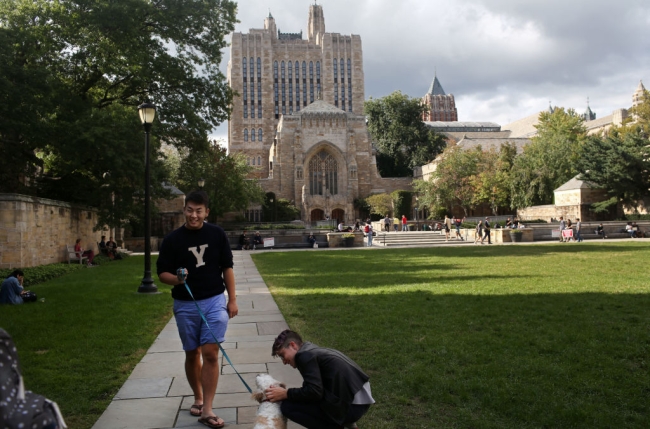You have /5 articles left.
Sign up for a free account or log in.

Yale University will require standardized test scores but allow AP and IB as well as SAT and ACT.
Yana Paskova/Getty Images
Yale University is adopting what it calls a “test-flexible” policy on standardized exam requirements, in which applicants must submit test scores but can choose to replace the traditional SAT or ACT with AP or International Baccalaureate exams. The policy will go into effect next admissions cycle.
A statement emailed to Inside Higher Ed and posted publicly early Thursday morning explained that after four years of test-optional policies, which Yale adopted alongside the vast majority of colleges at the onset of the COVID-19 pandemic, university officials saw both the benefits of test requirements and the need for increased flexibility.
“When used thoughtfully as part of a whole-person review process, tests can help increase rather than decrease diversity in our class,” the statement read, but “a narrow focus on only the ACT and SAT can discourage promising students from considering colleges like Yale. Finally, inviting students to apply without any test scores can, inadvertently, disadvantage students from low-income, first-generation, and rural backgrounds.”
The decision represents a rare middle ground in an increasingly divisive debate over requiring standardized tests, as selective colleges weigh whether to make permanent the test-optional policies widely adopted during the pandemic—and which have been touted as part of a potential patchwork of policies implemented to maintain diversity in the wake of the Supreme Court’s affirmative action ban last summer.
Other Ivy League and selective institutions have come down firmly on one side or another: Dartmouth College, Georgetown University and the Massachusetts Institute of Technology have all reinstated testing requirements, while Columbia University and the College of William and Mary extended their test-optional policies indefinitely.









